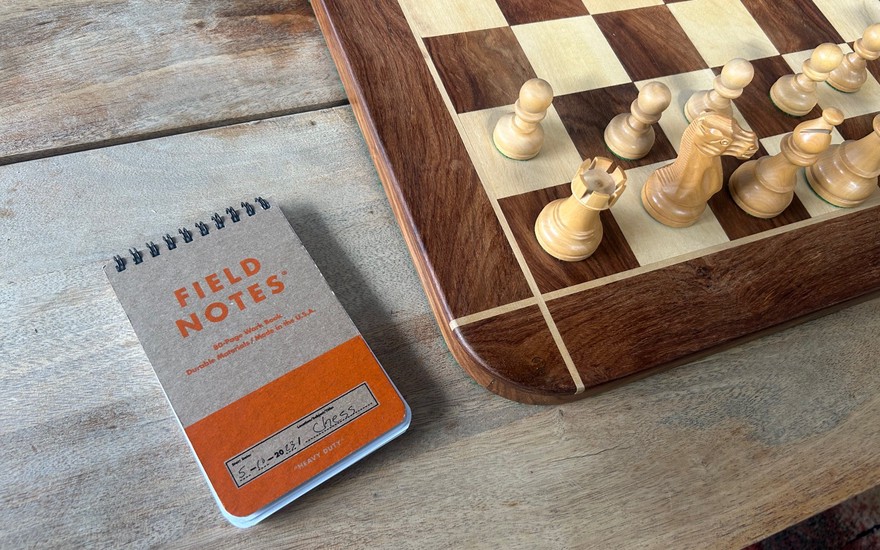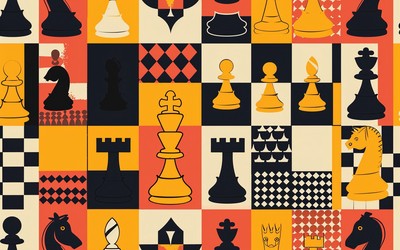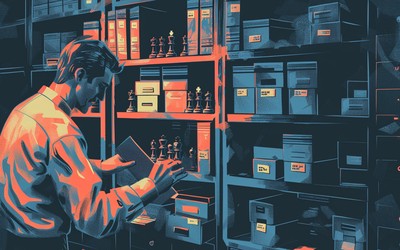
Nate Solon
The One Thing I Bring To Every OTB Tournament
Why I always have a notebook at OTB tournamentsToday I want to share with you one of the simplest but most effective ways I’ve found to improve my performance in over-the-board tournaments. I call it “the tournament notebook.”
It’s simply a notebook I bring with me to tournaments to record my thoughts. I’m not talking about a book of scoresheets. I don’t use this to record the moves from my games, but rather thoughts and concerns that arise during the tournament.
An OTB tournament has a way of making issues that seemed minor when you were preparing at home seem like emergencies. For many people, these tend to cluster around opening preparation: you become convinced that opponents will discover and exploit holes in your repertoire. For others, it could be anxiety around time management or blundering. One way or another, when you arrive at the tournament, you often realize that some aspect of your preparation is not where you want it to be.
The tournament notebook serves several purposes. First, it ensures you don’t forget about any important realizations. During the tournament is not the time to upgrade your opening repertoire or your calculation skills, but you might have uncovered a weakness that genuinely needs to be addressed in your training going forward. Or, in the cold light of day, you might recognize it as a random freak out.
Second, and perhaps more importantly, it helps you let go of any frustration you might feel for not being as prepared as you wanted to be. Once you’ve written down the issue, you know you’ve addressed it as well as you can for the time being, and won’t forget to return to it.
By the time you arrive at the tournament, for better or worse, your current ability is what you have to work with for this tournament. The time to fundamentally improve at chess has passed (at least for this tournament). It’s now time to make peace with the skills you have and get ready to use them as effectively as possible.
I’ve been playing a little more tennis recently, and I’ve noticed the most effective tennis players are not necessarily the ones with the prettiest strokes, but those with an objective knowledge of their own game and a cunning ability to use the shots they do have to win points. Chess is much the same way: you don’t have to be good at everything, but you need to know what you’re good at, and how to use that to win chess games.
This is especially true when your preparation is not where you want it to be. Recently I’ve been working on finishing a few big projects, including getting my files ready for my next Chessable course. It’s all good stuff that I’m excited to be doing, but it hasn’t left much time for my own chess improvement. Gone are the days of multi-week preparation plans. I get some training en passant from preparing lessons or material for The Chess Gym, but for the most part, I show up to the tournament and do my best.
This weekend I’ll be playing at the US Amateur Team East tournament in New Jersey. I’ve already noted that I need to have a look at my Black repertoire vs. d4. I have a good amount of experience under my belt with 1. Nf3 from my first Chessable course, and I just sent in the files for my next course, a Black repertoire vs. e4, so those lines are fresh in my mind. But I don’t really have a repertoire vs. d4 per se, just a jumble of lines I’ve played or prepared for students.
I don’t know if any other big issues will make themselves known during this tournament, but if they do, I’ve got my notebook ready.
Want to simplify your chess training? Check out The Chess Gym, my online chess learning community, where we focus on the most impactful techniques for leveling up your game.
If you liked this check out my newsletter where I write weekly posts about chess, learning, and data: https://zwischenzug.substack.com/
And if you're interested in 1:1 coaching, send me a message at coaching@natesolon.com.




